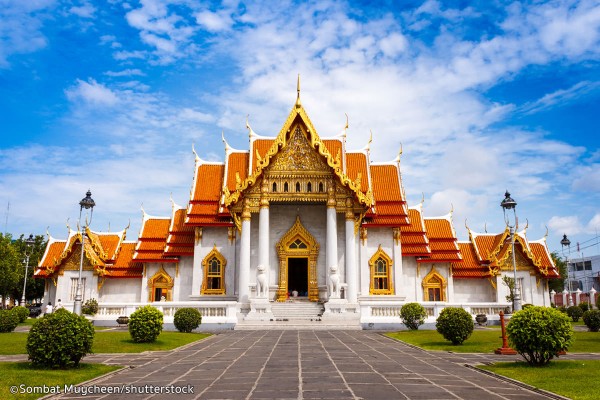A Perfect Sunday
In Bangkok, Thailand
For a comprehensive overview of the top temples in Bangkok, read this from insiders at Bangkok.com. 10 Must-See Temples in Bangkok: Bangkok’s Most Important Temples And Wats.
Put it all together with a stunning and delicious Sunday jazz brunch at the Sheraton Grande Sukhumvit. Read about it here from the Sunday Brunch archives.
The Foundations of Thai Culture
Fast Facts
Thailand’s culture incorporates a great deal of influence from India, China, Cambodia, and the rest of Southeast Asia. It is influenced primarily by animism, Indian culture and Buddhism.
Religion in Thailand is varied. There is no official state religion in the Thai constitution, which guarantees religious freedom for all Thai citizens, though the king is required by law to be Theravada Buddhist and 94% of Thai citizens identify with Theravada Buddhism. But there is a strong undercurrent of Hinduism with its distinct priestly class. The large Thai Chinese population also practices Chinese folk religions, including Taoism. The Yiguandao spread in Thailand in the 1970s and it has grown so much in recent decades to come into conflict with Buddhism; it is reported that each year 200,000 Thais convert to the religion.
Buddhist temples in Thailand are known as “wats,” meaning an enclosure. A temple has an enclosing wall that divides it from the secular world. Wat architecture has seen many changes in Thailand in the course of history. Although there are many differences in layout and style, they all adhere to the same principles.
The striving towards refinement, rooted in ancient Siamese culture, consisting of promoting that which is refined and avoiding coarseness is a major focus of the daily life of Thai people and high on their scale of values.


